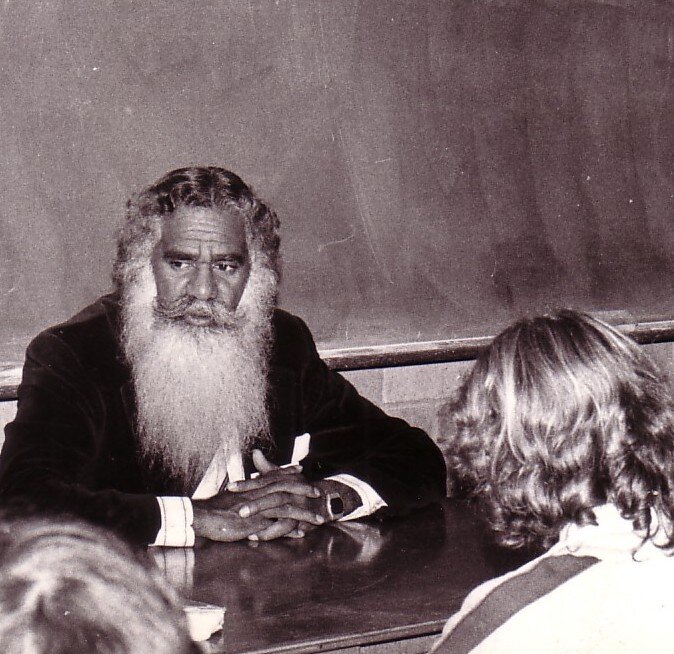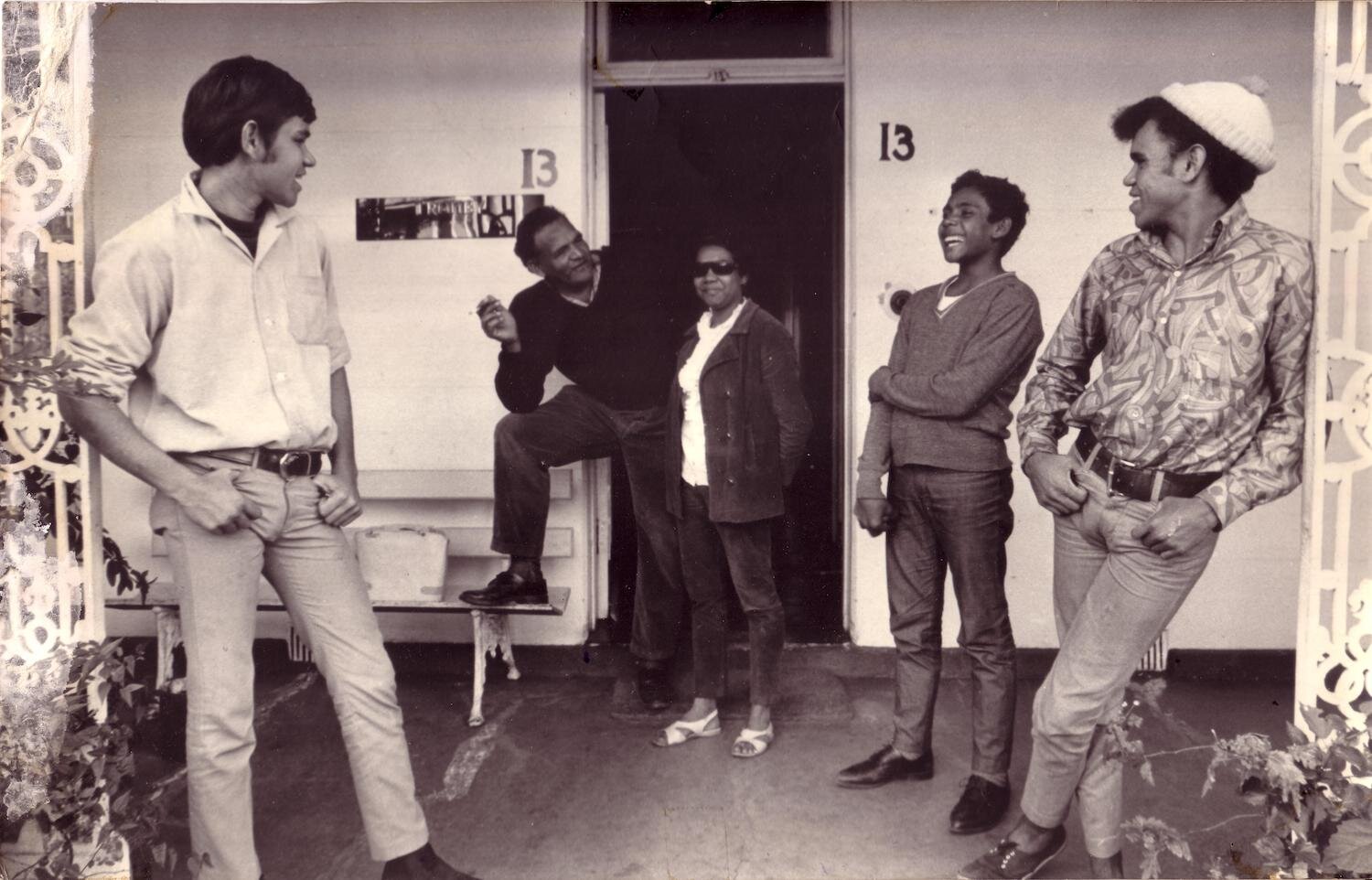
Warning: Visitors are warned that this page may contain images, names and voices of people who have passed away.

TRANBY and the Meeting Tree
A unique way of learning.
Tranby began in 1957, driven by the belief that Aboriginal communities across the country could manage themselves best as cooperatives, making their own decisions and running their own self-supporting local economy as well as doing other work.
The goal was for students to feel that learning through Tranby was going to be nothing like they had experienced before. An independent cooperative, and Indigenous-led from 1980, Tranby worked in many places to support Indigenous people's learning and build community power.
Wherever it ran courses, Tranby aimed to be a meeting place - a safe, common ground where people could come together to share ideas and learn. A big old tree in the Glebe coop garden gave Tranby its logo in these years: 'The Meeting Tree'. Billy Wilson, a young man from Bourke, drew the logo when he was studying at Tranby in the early 1980s.
This site gives a snapshot of the many ways that Tranby Co-op encouraged learning from 1980 to 2000. Whether in the city or on country, Tranby wanted to create the spaces for ideas and conversations to cross barriers. The goal was to make 'meeting trees’ wherever people came together to learn from one another.
Knowing the struggles: Burnam Burnam – also known as Harry Penrith – was born in 1936 at Wallaga Lake on the South Coast of NSW. He was an active campaigner for Land Rights and civil rights, but as a child he had been taken away from his family and spent long years in Kinchela Boys Home. So he knew about the problems many students faced. When he taught in classes, as he was doing in this photo, he talked to them not only about his activist campaigns but about the impact of the Stolen Generations separations and other government policies on Indigenous communities. Source: Tranby Archives

Learning on the job
Tranby recognised the learning that working people built up – whether it was in the shearing sheds or in the public service. Many Aboriginal people wanted qualifications to get jobs and Tranby helped to do that – but it also helped to make unions stronger by recognising Indigenous members and learning about Indigenous struggles.
Learning in community
The word ‘community’ meant many things. Tranby – under Alf Clint and later Kevin Cook and beyond – saw ‘community’ as something that people could strengthen and empower. Tranby encouraged people to build on Indigenous networks and knowledge to strengthen Indigenous communities. But as well, Tranby encouraged students to build alliances across racial, gender, culture and class barriers. The goal was to make communities with more justice for everyone for the future.
Learning in Glebe
In the 1980s, under Indigenous leadership, the Tranby building in Glebe campus changed to have new and different courses and to have more full-time students. There were lots of new classes and students came from many different places all over Australia. There were lots of friendships formed at lunchtime in the dining room when students from different courses came together and got to know each other. And then there was football and the Tocky…
Learning in activism
Many of the lessons that were most useful for people learning through Tranby were about how to network and organise. This meant getting involved in the campaigns there were going on at the time – whether locally, in the city or the bush or overseas. Many leaders from the struggles for Independence in the Pacific or for an end to uranium mining in the Northern Territory, came to talk at Tranby. And Tranby always encouraged its students – and its staff – to take an active role in making change happen!
Knowing the struggles. Elders as teachers.
Isabel Flick, an activist and elder from Collarenebri (born in 1927), was often at Tranby. She used the Tranby office to take part in her many campaigns: for Land Rights, for women’s rights, for a clean Darling river for nature as well as people and to speak up against Black Deaths in Custody. She would give talks to students at Tranby about these campaigns, but she would also sit around with them – playing cards and yarning – so she got to know them and could support them in their own goals.








